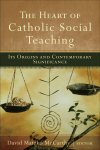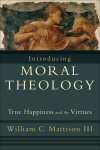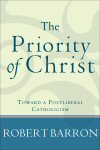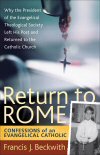Baker Academic Catholic Theology Collection (4 vols.)
Digital Logos Edition
Overview
The Baker Academic Catholic Theology Collection presents four volumes on Catholic theology’s basics and surrounding controversies. This collection examines Catholic social tradition, addresses the fundamentals of Catholic moral theology, and provides a postliberal approach to four theological topics: Christology, epistemology, the doctrine of God, and ethics. It includes treatment of Francis Beckwith’s spiritual journey, offering a look at his internal battle between evangelical theology and Catholicism. The Baker Academic Catholic Theology Collection will bring you insight on the theological borders distinguishing Catholicism and Protestantism.
With the Logos Bible Software edition of the Baker Academic Catholic Theology Collection, every word is essentially a link, equipping you to search the entire collection for a particular verse or topic—“doctrine of God” or “moral theology,” for example. This gives you instant access to a wealth of information on twentieth- and twenty-first-century Catholic theology.
This title is included in the following collections
You can save when you purchase this product as part of a collection.
Baker Ultimate Collection (174...
$44,711.50$33,549.99
Key Features
- Addresses fundamentals of Catholic moral theology
- Provides a postliberal approach to various theological topics
- Contains Francis Beckwith’s spiritual battle between evangelicalism and Catholicism
Product Details
- Title: Baker Academic Catholic Theology Collection
- Publisher: Brazos Press
- Volumes: 4
- Pages: 1,088
Individual Titles
- The Heart of Catholic Social Teaching: Its Origins and Contemporary Significance edited by David Matzko McCarthy
- Introducing Moral Theology: True Happiness and the Virtues by William C. Mattison III
- The Priority of Christ: Toward a Postliberal Catholicism by Robert Barron
- Return to Rome: Confessions of an Evangelical Catholic by Francis J. Beckwith

This accessible introduction covers the complete history and contemporary contexts of the church’s involvement in Catholic social tradition, giving distinctive attention to the Bible, liturgy, Augustine and Aquinas’ thought, and recent theological developments.
Bringing together veteran teachers of Catholic social teaching who have worked together on the content, this volume is designed to set social questions within the Catholic tradition and contemporary life. End-of-chapter application sections address practical concerns, such as racism in the church, charity, consumerism, and talking with neighbors and coworkers about moral issues. Discussion questions, case studies, excerpts of church documents, and suggestions for further reading enhance the book’s usefulness. It will work well for students of theology and ethics, particularly Catholics but also Protestants who want to know more about the Catholic social tradition.
Contributors:
- Mary Katherin Birge
- James M. Donohue
- Rodica Stoicoiu
- John F. Donovan
- William Collinge
- David Cloutier
- Joshua P. Hochschild
- David M. McCarthy
- Kathy Dow Magnus
- Richard Buck
- Trudy Conway
- Brian G. Henning
This collection brings the venerable tradition of Catholic social justice in line with a newer generation’s concerns about community, personal commitment, and liturgy. Social action and policy reform are integrally and dynamically related to the nature of the Christian life and the necessity of conversion. The book will be a superb teaching resource for students who want to link theology and tradition with the contemporary search for a meaningful way of life that includes justice and the common good.
—Lisa Sowle Cahill, J. Donald Monan Professor, Boston College
This collection arises from the collaborative habits of a real community of teacher-scholars, philosophers, and theologians who live in the same place and talk to each other about the general education program in which they all work. Wise, timely, rigorous, and accessible to students, The Heart of Catholic Social Teaching is an ideal choice for an undergraduate course.
—William L. Portier, Mary Ann Spearin Chair in Catholic Theology, University of Dayton
The Heart of Catholic Social Teaching moves beyond principles to the lifeblood of Catholic thought—Scripture, Eucharist, Augustine, Aquinas, and more. The book will be a useful resource for those who teach the Catholic social tradition.
—M. Therese Lysaught, associate professor, Marquette University
David McCarthy and the contributors of The Heart of Catholic Social Teaching: Its Origins and Contemporary Significance have done us an enormous service by providing a text that masterfully interweaves all the key time periods, figures, sources, documents, themes, and issues in Catholic social teaching.
—William C. Mattison III, associate professor of moral theology, The Catholic University of America
Offer[s] brief, helpful studies of various themes in CST [Catholic social teaching]. This volume, coupled with the foundational documents of CST, would make for a solid set of readings for an introductory course on the subject. . . . The essays are nonideological, balanced, informative, and hold together well. Thus, the collection is well worth the read. Undergraduates in CST courses would be an especially good audience for the book.
—Journal of Markets & Morality
David Matzko McCarthy is the Fr. James M. Forker Professor of Catholic Social Teaching at Mount Saint Mary’s University in Emmitsburg, MD. He is the author of Gathered for the Journey: Moral Theology in Catholic Perspective and Sex and Love in the Home: A Theology of the Household, and has written for publications such as New Blackfriars, Christian Century, and Modern Theology.

As college students develop their identities and construct their worldviews, they commonly wrestle with fundamental questions such as “Why be moral?” Taking into account feedback he has received from students and colleagues, William Mattison has crafted Introducing Moral Theology, a masterful basic text on Catholic moral theology. This work provides a solid overview of classical virtue ethics (i.e., temperance, prudence, fortitude, and justice) as well as the theological virtues (i.e., faith, hope, and love). Professors and students alike will appreciate the study questions, terms and definitions, bibliographies, and case studies on timely, thorny issues such as premarital sex and euthanasia. Readers will also note that Introducing Moral Theology draws deeply on Thomas Aquinas’ Summa Theologiae. While written primarily to and from a Roman Catholic perspective, this text will appeal to a wide swathe of Christian academics and believers interested in theology and ethics.
Those of us who regularly teach introductory courses in theological ethics know how difficult it can be to present the relevant theories and issues in an effective way. So it is very high praise indeed when I say that Mattison has written a first-rate textbook for beginners in this challenging field. Appropriating Aquinas’ organizing principle of the virtues, he draws together the main strands of the Catholic moral tradition in such a way as to reveal its inner logic, and to present this in a clear, accessible, and attractive way. He wears his considerable learning lightly, and while he clearly aims to present traditional Catholic moral teachings, he does so in a way that invites thoughtful engagement and dialogue. This would be suitable in a number of undergraduate and seminary contexts, and scholars in the field will find much of value here as well.
—Jean Porter, John A. O’Brien Professor of Theology, University of Notre Dame
Introducing William Mattison, hospitable teacher, imaginative lecturer, brilliant raconteur, innovative (yet traditional) moralist, and above all, fellow journeyman on the road to the Kingdom of God! With his casual style, Mattison welcomes his readers into an engaging conversation about the virtuous life, discovered not through some tired lesson plan but through everyday lived, familiar, and shared experience. As he tackles hard questions, from drinking and sex to euthanasia and war, Mattison guides us to see the full possibility of virtue ethics. This no-nonsense book is filled with wisdom, humanity, and graciousness!
—James F. Keenan, Founders Professor of Theology, Boston College
William Mattison’s Introducing Moral Theology provides an excellent overview of the key issues concerning the Catholic approach to the moral life. He presents a clear exposition of basic Catholic principles and interprets them in light of concrete moral issues that will appeal to undergraduates. His writing is engaging as well as fair and balanced. Students in Catholic colleges and universities will benefit enormously from this fine overview.
—Stephen J. Pope, professor of theological ethics, Boston College
The new wave in theology is virtue ethics, and Mattison rides it to new systematic heights. He lays out the role of virtue in the good life, shows how virtue relates morality to the rest of theology, then applies virtue ethics to concrete quandaries of Christian living today. Designed as an engaging classroom text, this book will also interest scholars of ethical theory.
—Lisa Sowle Cahill, J. Donald Monan Professor, Boston College
Mattison’s work makes a fresh contribution to public education. . . . All 18 chapters in this book are packed with intricate details; careful reading will unlock the rich treasure trove of old ideas expressed in modern language. . . . Mattison’s book gives a good orientation to Christian moral theology. Therefore everyone can benefit from reading and reflecting on it.
—Theological Book Review
William C. Mattison III is associate professor of theology at The Catholic University of America. He has edited and contributed to New Wine, New Wineskins: A Next Generation Reflects on Key Issues in Catholic Moral Theology.

This magisterial book by respected Catholic scholar Robert Barron follows an ecumenically attractive approach and offers a postmodern, Catholic systematic theology, boldly arguing that it can invigorate Roman Catholic theology and church life.
Father Barron argues that the standard ‘modern’ or ‘liberal’ approach to four theological areas—Christology, epistemology, the doctrine of God, and ethics—is inadequate, then demonstrates a more satisfactory postliberal approach. His expansive text argues for the importance and truth of postliberal’s basic Christ-centered approach and recasts epistemology, metaphysics, ethics, and aesthetics around that christocentric base. As such, his volume will be of use both in Catholic schools and theology courses and in Protestant seminaries.
By displaying how an imaginative human spirit can be illuminated by the manifold sense of Scripture, as well as activating tradition to dissolve lingering philosophical distractions, this stunning summa for a ‘postliberal Catholicism’ will at once subvert any tendency among the faithful to demand a facile ‘fix’ as well as offer lucid direction for anyone daring to undertake a pilgrimage of understanding—in and with the Christ.
—David B. Burrell, Hesburgh Chair of Theology and Philosophy, University of Notre Dame
Catholic theology stands at a foundational moment, and in this extended meditation on the figure of Christ Robert Barron boldly argues for a Catholicism that rethinks the controversy between modern and postmodern thought through such classic theological formulations as the controversy between Aquinas and Duns Scotus on the being of God. Broad in reference and informed by the homilist’s touch, The Priority of Christ will be an important contribution to a conversation the Church must have.
—Richard A. Rosengarten, associate professor of religion and literature, University of Chicago
It is crucial for Christians to apprehend the implications of Robert Barron’s trenchant thesis: ‘Modernity and decadent Christianity are enemies in one sense, but in another sense, they are deeply connected to one another and mirror one another.’ Moving beyond the ‘decadent Christianity’ that mistakenly sought its very starting points in the epistemological and metaphysical dead ends characteristic of ‘modernity,’ Barron expertly weaves together Thomistic and Balthasarian motifs into a robust short summa that treats Jesus Christ, God the Trinity, the created order, and Christian ethics. Readers seeking spiritual and intellectual renewal will be revitalized by this much-needed book, which overflows with love of God and his path of salvation.
—Matthew Levering, professor of religious studies, University of Dayton
Drawing deftly on Aquinas, Newman, Lonergan, Balthasar, and many others, Barron convincingly explains what a postliberal Catholic theology might be. But the great merit of this book is that he not only talks about what theology should be, he actually does it—above all in his lucid mystagogy on a series of Gospel stories, and in striking meditations on the mind of Christ embodied in four great women saints of our time.
—Bruce Marshall, Lehman Professor of Christian Doctrine, Southern Methodist University
The Priority of Christ is unusually stimulating for an exercise in ‘postliberal’ theology. The book is strikingly readable and saturated with what one might call ‘first-order’ doctrinal claims instead of primarily methodological navel-gazing. . . . Its title, ‘The Priority of Christ,’ indicates the epistemic primary of believing, doctrinally traditioned engagement with the Jesus Christ of biblical narrative. This scriptural primacy is a great strength and delight of the book. Its biblical commentary usually avoids mere recital of either the devotional or exegetically critical sort. Examples of compelling biblical readings abound. . . . The book will challenge readers to formulate their own understanding of what constitutes authentically theological interpretation of Scripture.
—Pro Ecclesia
Robert Barron is a priest in the Roman Catholic Archdiocese of Chicago and the rector/president of Mundelein Seminary at the University of St. Mary of the Lake. He is the author of Bridging the Great Divide: Musings of a Post-Liberal, Post-Conservative, Evangelical Catholic, The Strangest Way: Walking the Christian Path, and Heaven in Stone and Glass.

What does it mean to be evangelical? What does it mean to be Catholic? Can one consider oneself both simultaneously? Francis Beckwith has wrestled with these questions personally and professionally. He was baptized a Catholic, but his faith journey led him to Protestant evangelicalism. He became a philosophy professor at Baylor University and president of the Evangelical Theological Society (ETS). In 2007, after much prayer, counsel, and consideration, Beckwith decided to return to the Roman Catholic church and step down as ETS president.
This provocative book details Beckwith’s journey, focusing on his internal dialogue between the Protestant theology he embraced for most of his adult life and Catholicism. He seeks to explain what prompted his decision and offers theological reflection on whether one can be evangelical and Roman Catholic, affirming his belief that one can be both.
St. Augustine famously said that the word ‘religion’ is derived from reeligere, to choose again, perhaps over and over in the sense of a reunion. Here is that reunion story once again. Frank Beckwith takes us through some of the most interesting religious and intellectual terrain of the post-1960s generation of American Catholics. Far from being a rebuke of Evangelical Protestants, who nourished him deeply, Beckwith’s ‘confession’ should be a wake-up call for Catholics.
—Russell Hittinger, William K. Warren Professor of Catholic Studies, University of Tulsa
I have known Frank Beckwith for 20 years, and he is deeply in love with and committed to Jesus Christ. He, an Evangelical Catholic, and I, an Evangelical Protestant, have important differences theologically. But there are also key areas of agreement between us. This book is an irenic, intimate look at one man’s journey of discipleship. But it is much more than that. I have always believed that Protestant/Catholic dialogue is important. The two camps must develop awareness and partnership about the things on which they agree, clarity about the things on which they disagree, and charity with discernment about both. This book is sure to advance that dialogue. I highly recommend it.
—J. P. Moreland, distinguished professor of philosophy, Talbot School of Theology
Return to Rome is the story of Frank Beckwith’s homecoming. It’s a story told without a trace of flippancy or disdain. Frank’s love for the faith communities that have shaped his life is obvious; and it gives to his narrative a warmth and a grace that seems to me unique among contemporary conversion stories.
—Ronald K. Tacelli, associate professor of philosophy, Boston College
Frank Beckwith sketches vividly the sense of home that so many of us have found in the Catholic church. It is the one place where we can have it all, where we can be both evangelical and Catholic. Nothing is lost, but all the fullness is gained. Told with grace and wit, Frank Beckwith narrates life as it really is: a divine comedy. And he makes us all laugh with him as he tells a truly edifying story.
—Scott Hahn, professor of theology, Franciscan University of Steubenville
In struggling with the unwelcome appeal of the Catholic Church, Frank Beckwith gave every benefit to the thinking of his Protestant brothers and the long tradition that had formed him for so many years. The result is a careful and generous explanation of the arguments for his entering into full communion with the Catholic Church. His faith memoir will aid mutual understanding between Protestants and Catholics as well as explain why so many serious Evangelicals have found themselves (often unhappily) drawn to Rome.
—David Mills, executive editor, First Things
In 2007 Francis Beckwith, an esteemed scholar on ethical and political issues at Baylor University, after announcing that he had returned to the Roman Catholic Church, resigned as president of the Evangelical Theological Society. In this highly readable apologia pro vita sua, Frank reveals the reasons for his surprising spiritual odyssey.
—Edwin M. Yamauchi, emeritus professor of history, Miami University
Even if, like me, you are a confirmed, convinced, and conscientious Protestant, you have to say that Francis Beckwith’s Return to Rome is an interesting, intimate, and intellectually enlightening account of why he returned to the church of his baptism and his youth. Every good book faces obstacles, and I suspect that this good book will be no different. The denominationally contentious among us will read it, and attack it as Catholic apologetics, as inter-church proselytizing and warfare. It is not. Rather, it’s an account, a journey, a story, a memoir, a travelogue. It gives its reasons, to be sure, but it is not apologetics. It’s the rich, articulate, and memorable narrative about why one pilgrim decided to go home. Therein lies its value and its contribution. I, for one, have always been partial to pilgrims and their theological tales. This book is no exception.
—Michael Bauman, professor of theology and culture, Hillsdale College
Francis J. Beckwith is professor of philosophy and church-state studies, and codirector of the program in philosophical studies of religion in the Institute for Studies of Religion, at Baylor University in Waco, Texas. He is the author or coauthor of numerous books, including Defending Life: A Moral and Legal Case against Abortion Choice and To Everyone an Answer: A Case for the Christian Worldview.